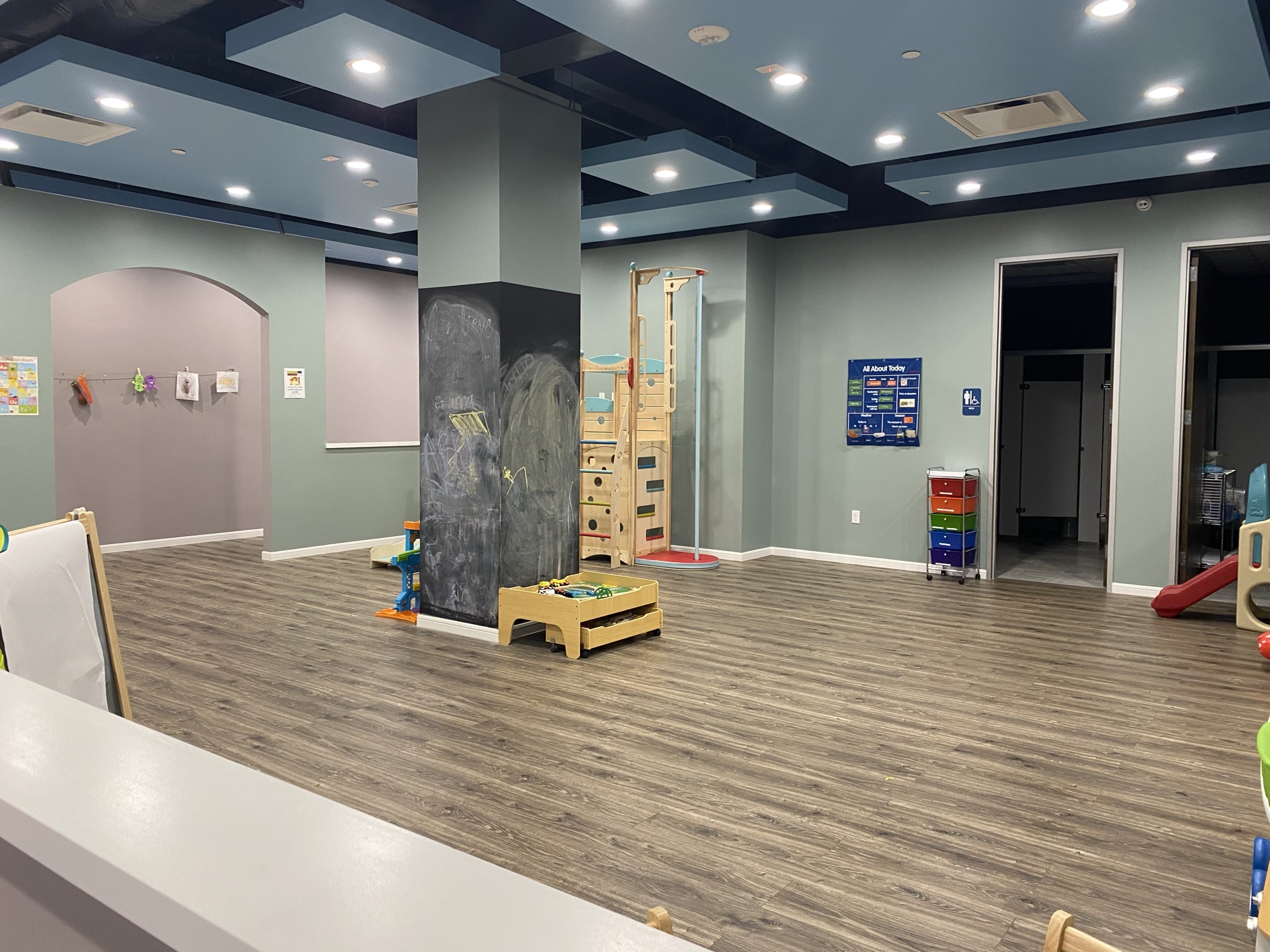Alright folks, let’s dive right into it. If you're exploring the world of autism care in Austin, Texas, then you’ve come to the right place. Austin has emerged as a hub for Applied Behavior Analysis (ABA) therapy, offering families innovative solutions and personalized support for children with autism spectrum disorder (ASD). But hold up—why should this matter to you? Well, if you're looking for ways to enhance your child's development or simply seeking a deeper understanding of ABA autism services, we’ve got all the answers you need right here.
Imagine this: a city buzzing with opportunities, where cutting-edge therapy meets compassionate care. That’s Austin for you. The city is home to some of the best ABA practitioners and programs, designed specifically to cater to the unique needs of individuals with autism. Whether you're a parent, caregiver, educator, or simply someone curious about autism care, this article will arm you with actionable insights and expert advice.
So, buckle up because we’re about to break down everything you need to know about ABA autism services in Austin. From what ABA therapy entails to how it can transform lives, we’re going to cover it all. And trust me, by the end of this, you’ll feel empowered and informed, ready to take the next step in your journey.
What is ABA Therapy? Let's Break it Down
Understanding the Basics of ABA Autism
Now, let’s get real for a sec. ABA, or Applied Behavior Analysis, might sound like a fancy term, but it’s actually pretty straightforward. It’s a scientifically-backed approach that focuses on improving social, communication, and learning skills through positive reinforcement. Think of it as a toolkit that helps individuals with autism reach their full potential.
In simple terms, ABA therapy breaks down complex behaviors into smaller, manageable steps. These steps are then taught systematically, with rewards given for successful completion. This method has been proven to be highly effective in addressing a wide range of challenges faced by individuals with autism.
But here’s the kicker—ABA isn’t just about therapy sessions. It’s about creating lasting change. By focusing on behavior patterns and reinforcing positive actions, ABA therapy helps individuals build skills that they can carry with them throughout their lives.
Why Choose ABA Autism Services in Austin?
Exploring the Unique Benefits of ABA in Austin
Austin, Texas, is more than just a music and tech hub—it’s also a leader in autism care. The city boasts a vibrant community of ABA therapists, support groups, and resources that make it an ideal place for families seeking quality care. Here’s why:
- Access to Top-tier Providers: Austin is home to some of the best ABA therapy centers in the country, staffed by highly trained and experienced professionals.
- Community Support: Families in Austin benefit from a strong network of support, including parent groups, advocacy organizations, and educational programs.
- Innovative Approaches: Many ABA providers in Austin incorporate the latest research and technology into their therapy sessions, ensuring that clients receive the most up-to-date care.
Plus, the city’s diverse and inclusive culture makes it a welcoming environment for individuals with autism and their families. Whether you're a newcomer or a long-time resident, you’ll find plenty of resources to help you navigate the autism care landscape.
How Does ABA Therapy Work?
Step-by-Step Guide to ABA Autism Therapy
Alright, let’s talk process. ABA therapy typically follows a structured approach, tailored to meet the individual needs of each client. Here’s how it works:
- Assessment: The first step is a comprehensive evaluation to identify the specific challenges and strengths of the individual. This helps therapists develop a personalized treatment plan.
- Goal Setting: Based on the assessment, therapists work with families to set measurable goals. These might include improving communication skills, reducing challenging behaviors, or enhancing social interactions.
- Therapy Sessions: ABA therapy sessions are conducted in a variety of settings, including clinics, schools, and even at home. Sessions are interactive and engaging, designed to keep clients motivated and focused.
- Progress Monitoring: Regular evaluations are conducted to track progress and make adjustments to the treatment plan as needed. This ensures that clients continue to make meaningful progress over time.
And let’s not forget the importance of collaboration. ABA therapists work closely with parents, educators, and other caregivers to ensure that everyone is on the same page and working towards common goals.
Benefits of ABA Autism Therapy
Transforming Lives Through ABA
The benefits of ABA therapy are far-reaching and impactful. Here are just a few reasons why ABA is considered the gold standard in autism care:
- Improved Communication Skills: ABA therapy helps individuals with autism develop effective communication skills, whether through verbal or non-verbal means.
- Enhanced Social Interactions: By focusing on social skills, ABA therapy helps individuals build meaningful relationships and engage more fully with their communities.
- Reduced Challenging Behaviors: ABA techniques are highly effective in reducing problematic behaviors, such as aggression or self-injury, while promoting positive alternatives.
- Increased Independence: ABA therapy equips individuals with the skills they need to live more independently, boosting their confidence and self-esteem.
But don’t just take our word for it. Studies have consistently shown that ABA therapy leads to significant improvements in behavior, learning, and overall quality of life for individuals with autism.
Choosing the Right ABA Provider in Austin
Tips for Finding the Best ABA Autism Services
With so many ABA providers in Austin, how do you choose the right one? Here are a few tips to help you make an informed decision:
- Look for Accreditation: Ensure that the provider is accredited by a recognized organization, such as the Behavior Analyst Certification Board (BACB).
- Check Experience: Experience matters. Look for providers with a proven track record of success in ABA therapy.
- Consider Location: Choose a provider that’s conveniently located, making it easier for you and your family to attend therapy sessions regularly.
- Ask About Customization: A good ABA provider will offer personalized treatment plans that address the unique needs of your child.
And don’t forget to trust your gut. If something feels off or you’re not getting the level of care you expect, it’s okay to explore other options. Your child’s well-being is the top priority.
Cost and Insurance Coverage for ABA Autism Services
Understanding the Financial Side of ABA Therapy
Let’s talk money. ABA therapy can be a significant investment, but it’s one that pays off in the long run. Fortunately, many insurance plans in Texas cover ABA services, making it more accessible for families. Here’s what you need to know:
- Insurance Coverage: Under Texas law, most insurance plans are required to cover ABA therapy for children with autism. Be sure to check with your provider to understand the specifics of your coverage.
- Financial Assistance: Some ABA providers offer financial assistance or sliding scale fees to help families who may be struggling to afford therapy.
- Payment Plans: Many providers also offer flexible payment plans, allowing families to pay for services over time.
And remember, the cost of ABA therapy isn’t just about the financial investment—it’s about the lifelong benefits it provides. Investing in your child’s future is always worth it.
Success Stories: Real-Life Examples of ABA in Austin
Hearing from Families Who Have Benefited
There’s nothing quite like hearing from those who’ve experienced the positive impact of ABA therapy firsthand. Here are a few success stories from families in Austin:
- John’s Journey: John, a 6-year-old with autism, struggled with communication and social interactions. After six months of ABA therapy, he’s now able to express his needs verbally and has formed close friendships with his peers.
- Sarah’s Story: Sarah, a 10-year-old with autism, faced challenges with self-regulation. Through ABA therapy, she’s learned coping strategies that have significantly reduced her anxiety and improved her ability to focus in school.
These stories are just a glimpse into the transformative power of ABA therapy. Every child’s journey is unique, but the common thread is the positive change that ABA brings to their lives.
Challenges and Considerations in ABA Therapy
Being Realistic About the Process
While ABA therapy is incredibly effective, it’s not without its challenges. Here are a few things to keep in mind:
- Time Commitment: ABA therapy requires a significant time investment, with sessions often lasting several hours a week.
- Emotional Impact: Both children and parents may experience emotional highs and lows during the therapy process. It’s important to have a support system in place to help navigate these challenges.
- Consistency is Key: For ABA therapy to be successful, consistency across all environments is crucial. This means that everyone involved in the child’s care must be on the same page and committed to implementing the strategies taught in therapy.
But here’s the thing—these challenges are all part of the process. With patience, perseverance, and the right support, they can be overcome.
Resources and Support for Families in Austin
Where to Turn for Help
Austin offers a wealth of resources for families navigating the world of autism care. Here are a few places to start:
- Autism Society of Central Texas: This local organization provides advocacy, education, and support for individuals with autism and their families.
- University of Texas at Austin: The university’s autism research programs offer cutting-edge insights and opportunities for families to participate in studies.
- Local Support Groups: Joining a support group can be a great way to connect with other families and share experiences and advice.
And don’t forget to leverage online resources, such as webinars, blogs, and forums, to stay informed and up-to-date on the latest developments in autism care.
Conclusion: Empowering Families Through ABA Autism Services
Alright, we’ve covered a lot of ground here. From understanding the basics of ABA therapy to exploring the unique benefits of ABA autism services in Austin, we’ve delved into what makes this city a leader in autism care. So, what’s the takeaway?
ABA therapy is a powerful tool that can transform the lives of individuals with autism and their families. With the right provider, support system, and resources, you can create a brighter future for your child. And remember, you’re not alone on this journey. Austin’s vibrant autism community is here to support you every step of the way.
So, what’s next? If you’re ready to take the next step, reach out to an ABA provider in Austin today. And don’t forget to share this article with others who might benefit from it. Together, we can make a difference in the lives of individuals with autism.
Table of Contents:
- What is ABA Therapy? Let's Break it Down
- Why Choose ABA Autism Services in Austin?
- How Does ABA Therapy Work?
- Benefits of ABA Autism Therapy
- Choosing the Right ABA Provider in Austin
- Cost and Insurance Coverage for ABA Autism Services
- Success Stories: Real-Life Examples of ABA in Austin
- Challenges and Considerations in ABA Therapy
- Resources and Support for Families in Austin
- Conclusion: Empowering Families Through ABA Autism Services


